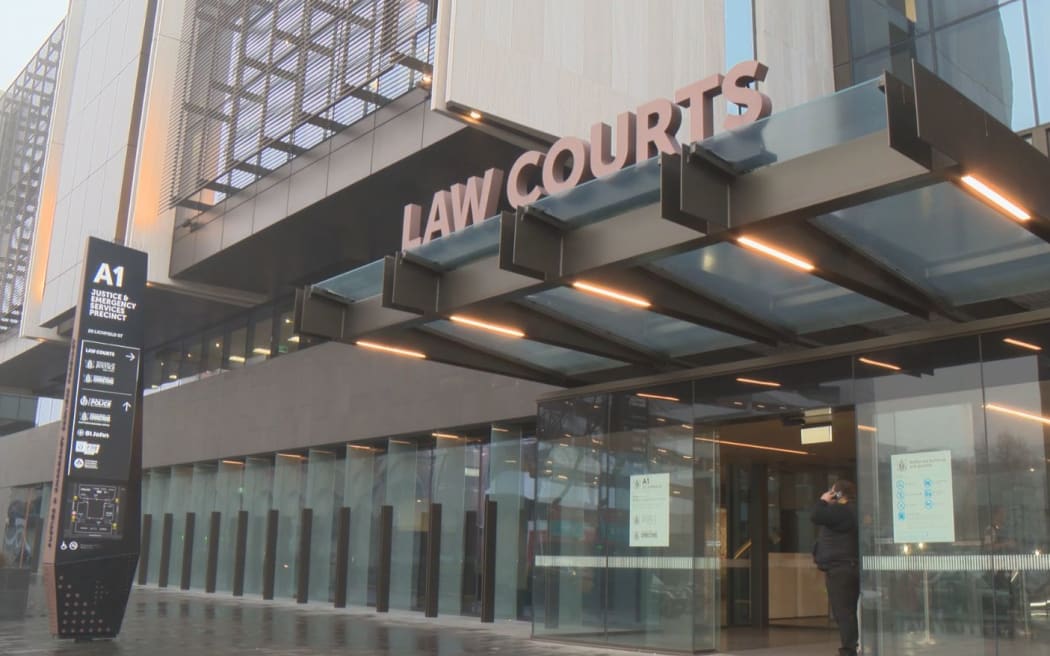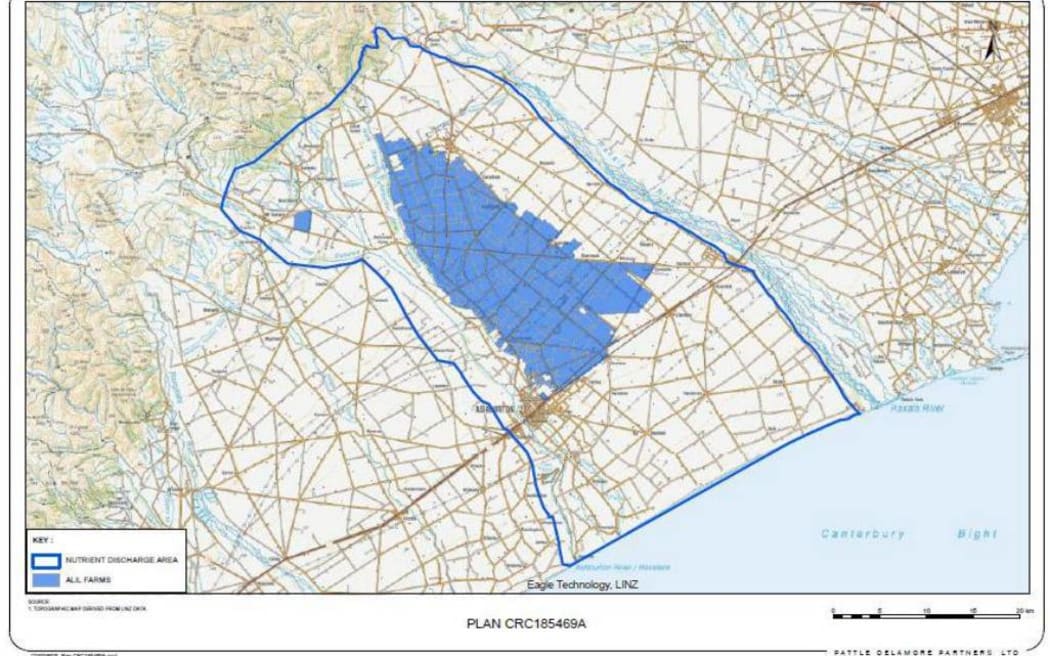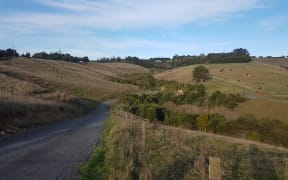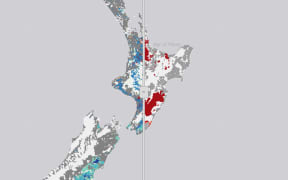
High Court at Christchurch. Photo: RNZ / Simon Rogers
The High Court has ruled Canterbury Regional Council unlawfully granted a resource consent for nutrient discharge in Ashburton.
The consent was granted to Ashburton Lyndhurst Irrigation (ALI) by a commissioner in June 2021, which covers 228 farms and an area of 177,000 hectares.
It allowed the collectively owned irrigation scheme to release nutrients related to farming activities - like nitrogen - onto or into land where the contaminants could then enter the nearby waterways.
More than half the farms covered by the consent were dairy farms. The discharge area stretched from the foothills of the Southern Alps to the Hakatere Ashburton River and lagoon, where it met the sea.
The Environment Law Initiative (ELI) filed a judicial review in 2022, stating the commissioner had failed to properly apply the relevant sections of the Resource Management Act (RMA) and failed to consider relevant coastal policy when granting the consent.
ELI also claimed there was not enough consideration of whether the consent process had special circumstances which would have warranted it being publicly notified.
ELI director of research and legal Matthew Hall said it believed in this case, the law was clearly not being applied in the context of significant environmental degradation and pollution.
"The council's own reports recognised the Hakatere Ashburton River as an outstanding habitat with many rare birds, fish, plants and other species. It's also an outstanding area of natural character and recreational importance," he said.
"The key adverse effects here [from the consent] relates to the growth of aquatic plants.
"Every gardener knows that nitrogen causes plants to grow and in aquatic environments, this growth can cause the plants to smother ecosystems… particularly during times of low river flows."

A map of the discharge area. Photo: Supplied/High Court at Christchurch
A hearing was held at the High Court at Christchurch in May 2023, and Justice Cameron Mander reserved his decision.
His findings have now been delivered - and the council's consent was quashed.
"The commissioner found that agricultural land was the primary source of nutrients leaching into water, and that ALI's scheme had contributed to the widespread degradation in the groundwater receiving environment which was sensitive to nutrient inputs from farming activities," Mander's decision said.
"The commissioner further found that the degradation of groundwater quality is closely linked to the degradation of downstream surface water quality and declining ecological values in the lower Hakatere Ashburton River and its hāpua (lagoon)."
A reducing nitrogen discharge allowance had been set within the consent. It required nitrogen levels to reduce by 10 percent from the current 2020 nitrogen leaching load by 1 January 2025, and by 20 percent by 1 January 2023. Whether this would improve groundwater and surface water quality in the receiving environment was of particular focus, Mander said.
"On the commissioner's own findings, it appears indisputable there will likely be continuing significant adverse effects on aquatic life for the time being."
The commissioner also failed to properly incorporate the relevant coastal laws under the RMA and coastal policy from the council in respect of the discharge flowing to the lagoon, Mander said.
"The failure to take into account or have regard to these relevant provisions constituted an error of law."
But he dismissed the ELI claim that the consent should have been publicly notified.
"We are mildly disappointed about that, but we're pleased that the court recognised that the other two grounds were errors of law," Hall said.
"The High Court agreed that we were correct in our decision not to publicly notify the application and only limited notify to Te Rūnanga o Ngāi Tahu. However, the Court decided that there was an error in law in granting the discharge consent, as some points of law hadn't been interpreted correctly," Canterbury Regional Council's director of operations Stephen Hall said.
ALI chief executive Rebecca Whillans said ALI was disappointed with the findings.
"In 2014 we obtained one of Canterbury's first nutrient discharge consents issued to an irrigation scheme. Since then, we have put in place several measures including, audited farm environment plans. Our farmers are engaged and driven to do the right thing," she said.
ALI first applied to the council to renew the consent in 2019, Whillans said.
"We have been very supportive of the process and procedures used to grant the decision on the replacement consent," she said.
"The renewed consent granted in 2021, enabled Mid-Canterbury farmers to continue to pro-actively manage the impacts of their farming operations and was an advancement of the consent from 2014.
"We are now operating under continuance on our prior consent while the decision on the 2021 consent is reconsidered," Whillans said.
The findings raised serious questions about the council's consent decision-making, and ELI was checking other consents both in Canterbury and across the motu, Hall said.
"The council has clearly ignored key coastal policies in its consent decision making, despite recognising that upstream discharges lead to effects at the coast. We therefore also call on Canterbury Regional Council to immediately review its use of coastal policies in consent decision making," Hall said.
"The ball is now in the council and [ALI]'s court, it's up to them what happens next."
The council was "not aware of any other consents that may have breached the prohibition" set out in s 107 of the RMA, Stephen Hall said.
"However, in light of the High Court decision, we will be reviewing how we apply both s 107 of the RMA and the New Zealand Coastal Policy Statement regarding cumulative effects, in cases where discharge permits are lodged for catchments where existing water quality is having significant adverse effects on aquatic life," he said.
The ALI consent application had been returned to Canterbury Regional Council for reconsideration.
The council was "taking time to understand the implications of the decision", Hall said.
"We will first need to understand whether either party - ALI or ELI - intend to appeal aspects of the decision," he said.
If no appeals were made, and ALI wished to continue with the application, it would notify affected parties of a new hearing, Hall said.




